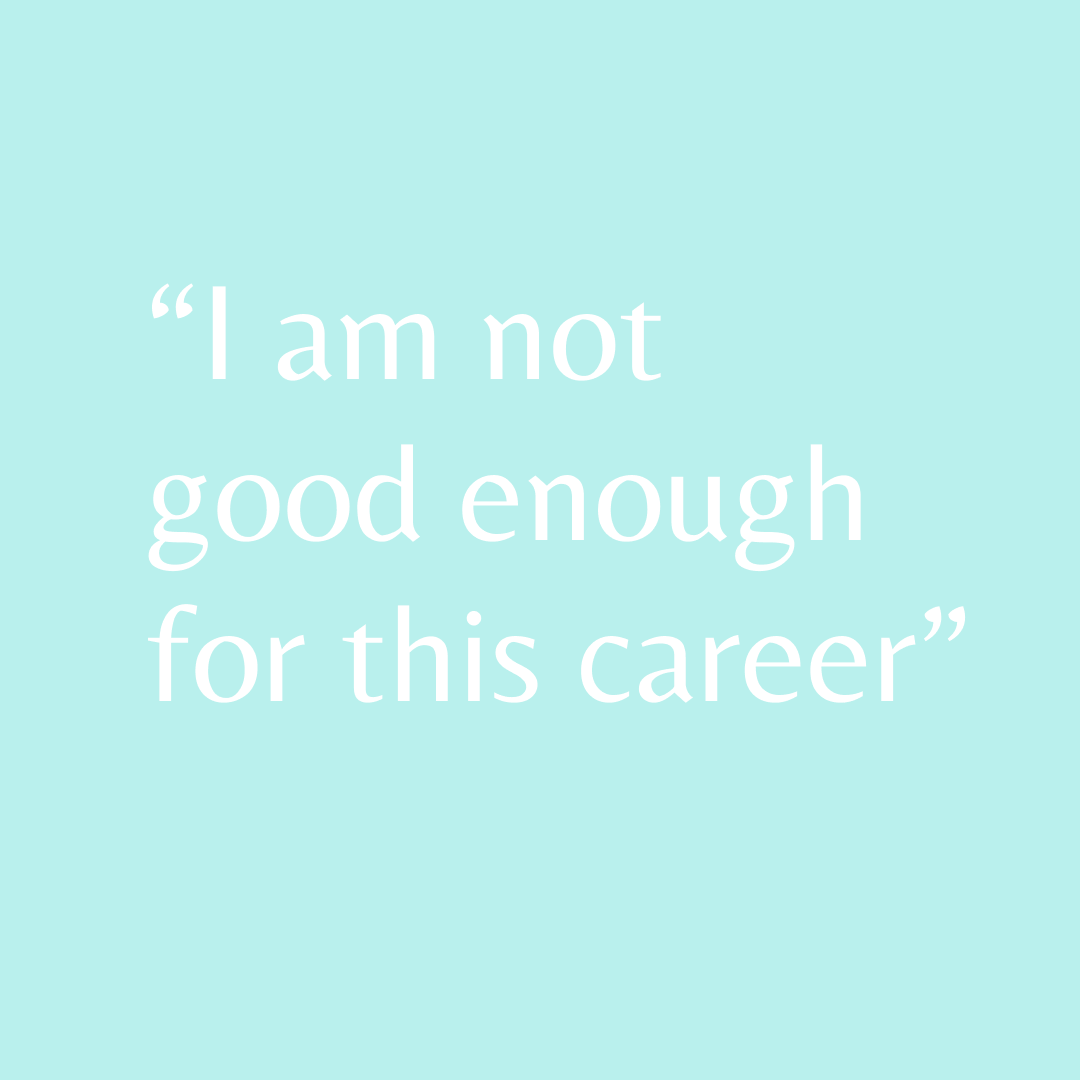Navigating Emotions, Reframing Narratives
Cognitive Behavioral Therapy





Are these some of the stories you tell yourself when emotions engulf you?
Humans are born storytellers, and sometimes it’s not the emotion itself- rather, it’s the story we tell ourselves about emotions. What experiences come to mind when you feel sad? Are you telling yourself this feeling will never pass? Or that this feeling is going to last forever? Here at UnFix, my work is all about challenging your narratives, and giving you a sense of agency over your thoughts, emotions and behaviour- all of which, influence the other!
Hi! I’m Aanandita Vaghani
Founder & Mental Health Counselor at UnFix
Every therapist works a little differently. Let’s explore how I can support you on your journey to emotional well-being.

UnFiltered Testimonials
Real Experiences, Real Transformation - Hear What Our Clients Have to Say

Aanandita and her staff are very loving and understanding. I never felt I was taking therapy rather it felt like I am always talking to a mentor to understand myself.
She made me realize that I am not alone. She helped me overcome my fear of health, death, loneliness, etc.
You can trust her with eyes closed. She is the most patient and understanding person. She always puts her clients first and understands their perspective. She will always be there for you.
Anonymous Client
When I 1st started my therapy journey 2+ years ago, I was very confused & worried. I had no idea what I was getting into. But after my first 2 sessions I understood how it works. Aanandita made sure I opened up and made me feel extremely comfortable. She has been there for me at every instance I needed her. She has been a great support, therapist and a sounding board. She never lets her own thoughts over shadow your feelings and I feel that speaks a lot about her as a person and A therapist.
She has helped me overcome my body dysmorphia issues and also gave me tools to help with my anxiety which I will cherish and use all my life. There are very few therapists who help you smoothen out your thoughts which feel like a maze. She is one of them.
Anonymous Client
Aanandita, my mental health counselor has been a great help to me during a difficult time in my life. She has been instrumental in helping me process my emotional grief and work through it using Cognitive Behavioral Therapy. From the very first session, Aanandita was kind, empathetic and non-judgmental. She created a safe space where I could talk about my thoughts and feelings without THE fear of being criticized or misunderstood.
Her approach to therapy is both structured and flexible, depending on my needs and the issues we were addressing. She has been extremely effective in helping me overcome my emotional struggles. Through her guidance, I have developed a greater understanding of my emotions and how to manage them in a healthy way.
Anonymous Client
I’ve been speaking to Dr. Anandita for a couple of years now, and she’s not the first therapist I’ve had.
Over the last two years I’ve understood that she’s better than the rest for a few reasons, the biggest one being her ability to understand our generation. Her age and experience dealing with people like me is her strongest strength.
Anonymous Client
I appreciate how actively Dr. Anandita listens to me and makes me feel heard during our each session. It made me feel more comfortable opening up to her.
Anonymous Client
She made me realize that I am not alone. She helped me overcome my fear of health, death, loneliness, etc.
You can trust her with eyes closed. She is the most patient and understanding person. She always puts her clients first and understands their perspective. She will always be there for you.
Aanandita made sure I opened up and made me feel extremely comfortable. She has been there for me at every instance I needed her. She has been a great support, therapist and a sounding board. She never lets her own thoughts over shadow your feelings and I feel that speaks a lot about her as a person and a therapist.
She has helped me overcome my body dysmorphia issues and also gAVE me tools to help with my anxiety which I will cherish and use all my life. There are very few therapists who help you smoothen out your thoughts which feel like a maze. She is one of them.
From the very first session, Aanandita was kind, empathetic, and non-judgmental. She created a safe space where I could talk about my thoughts and feelings without THE fear of being criticized or misunderstood.
Her approach to therapy is both structured and flexible, depending on my needs and the issues we were addressing. Aanandita has been extremely effective in helping me overcome my emotional struggles. Through her guidance, I have developed a greater understanding of my emotions and how to manage them in a healthy way.
Trusted by 25,000+ world-class brands and organizations of all sizes








In the Spotlight
Charting Our Journey through Media Mentions and Noteworthy Collaborations
Our Services
Every Therapist works a little differently.
I believe that therapy is a journey of co-exploration. As a therapist, I tend to emphasise a collaborative approach – where you and I both, share equal responsibility and accountability for your progress. I use a person-centred approach that emphasises the person before a diagnosis. I offer a non-judgemental space where you can express yourself in a way that you might not be able to in the outside world. The therapy room (whether virtual or physical) then becomes a simulation of the real world beyond therapy. In here, we can challenge thoughts, learn about how you perceive yourself, how others perceive you, and how you respond to challenges in your life. Eventually my goal is to have you be your own therapist- and swim without floats!
Individual Counseling
Explore self-discovery and resilience in 45-minute sessions tailored to your needs, fostering positive change and emotional well-being.
Couple’s Counseling
Nurture your relationship in personalized 60-minute sessions, fostering communication, understanding, and shared growth on the journey together.
Child Counseling
Support your child’s emotional growth in 45-minute sessions, providing a safe space to express feelings and navigate challenges with guidance.
Corporate Workshops
Explore self-discovery and resilience in 45-minute sessions tailored to your specifications, fostering positive change and emotional well-being.
Group Workshops
Engage in collective growth with tailor-made group workshops, exploring topics that foster connection, understanding, and shared learning experiences.
News Publication Articles
Craft compelling articles for your publication, delivering insightful content on mental health, well-being, and personal growth for your audience.
Social Media Collaborations
Explore impactful collaborations on Instagram and YouTube, sharing insights, experiences, and discussions on mental health and personal development.
Live Sessions & Interviews
Connect with live sessions and interviews, delving into diverse topics on mental health, relationships, and personal growth for an enriching experience.
Therapy FAQs
As a therapist, I do not prescribe medications. Medication is usually prescribed by Psychiatrists or Doctors. While I am familiar with medications, I am not able to tell a practitioner what to prescribe to you. However, I might communicate with your medication prescriber if you consent to it, and I am open to referring you to a Psychiatrist when I feel like it could benefit you.
While there can be many benefits to therapy as a way to become aware of your patterns of behavior, and feeling like someone ‘needs’ therapy can be a stigmatizing way of approaching the topic, here’s what the American Psychological Association recommends.
- You may need therapy when something causes you distress in a way that it might affect some part of your life
- When coping with the issue takes up at least an hour a day
- When the issue has decreased your quality of life
- When the issue has negatively affected your career, personal life, or relationships
- If you are controlled by your symptoms like feeling anxious or depressed, and could cause harm to yourself or others if left untreated
This looks different for each individual- because each individual comes in with different challenges and concerns. However, in general you can expect to discuss current events in your life, relevant personal history and make goals accordingly. From time to time we may also revisit these goals to see how much progress you have made from them, and if they need amendments along the way.
Yes, counselling sessions are confidential. The only exceptions would be if you were to pose a danger to yourself or others, in which case the parties involved would be notified.
Although I appreciate support and welcome the opportunity to create a safe community on my public account, it is essential to keep boundaries between my personal and professional life as a therapist and for that reason, I don’t open my private account to clients. Besides being a personal decision, it is also a rule I must follow owing to the ethics in my profession.
Cognitive behavior therapy (CBT) is a of time-limited, goal-oriented therapy that has been extensively researched for the treatment of psychiatric disorders.According to the cognitive behavioral model, thoughts, feelings and behaviors are connected – and psychopathology occurs because of problematic patterns in thinking and behavior that lead to difficult emotions and behaviors that do not serve us. The aim of CBT is to help patients adopt more adaptive patterns of thinking and behavior to improve function and quality of life.
KEY behaviors CBT can be helpful for are
– Attention related challenges
– Pandemic stress
– Social Anxiety
– Self-defeating thoughts
– impulsivity
– defiance
– tantrums
– Self-Image
– Unusual eating
CBT usually starts out with weekly sessions. As treatment progresses, sessions may be spaced further apart, such as every two weeks or month, depending on the client . Once our clients finish CBT, it is common to return for a ‘booster’ session to deal with setbacks and refresh themselves on previously learned skills.
Although it is shorter term than other types of therapy, contrary to popular belief, CBT is not a quick fix. Learning new patterns of behavior is a process, and it can take a few sessions for you to start learning from and applying therapeutic techniques we discuss in session. The practice that you put in between sessions is as important ( if not more) than the actual sessions for this reason- so you can practice trying out your new skills! This being said, progress and process depends on the client and relavant concern.
Yes. If you require more than one session a week, we may be able to accommodate this depending on availability- and the frequency of sessions will be reviewed as therapy progresses.
In order to reserve a certain time slot just for you each week there will be a cancellation policy that applies. This policy will be shared with you prior to your first appointment.
Yes, we are operating virtually as well as in person, depending on your location. A 2018 study published in the Journal of Anxiety Disorders determined that online cognitive behavioral therapy is “effective, acceptable, and practical health care.” The study found that online cognitive behavioral therapy was just as effective as face-to-face treatment for major depression, panic disorder, social anxiety disorder, and generalized anxiety disorder.
At UnFix, you’ll have the opportunity to freely talk about yourself and work through problems without worrying about someone expressing their own opinions, criticisms, while being conscious of their biases. While friends and family have a benefit of knowing you very well, a therapist is trained to help you approach situations by teaching you to gain a different perspective, learn scientifically researched coping skills and improve your relationship with self and others. In addition, what is said in therapy is also private and confidential which will help you discuss topics that you might find too embarrassing or difficult to share with friends or family.
Although it is normal to feel like someone without the same amount of life experience as you won’t be able to help you, this is a misconception. There are some cons to considering age when making a decision about working with a therapist. It’s important to recognize that a therapist’s age is not necessarily an indicator of how experienced, relatable, or helpful they will be. Even young therapists have experience helping clients through their practicums, internships, and the supervised clinical experience that is required to become a licensed professional counselor.
UnFix Blog Series
Deeper Perspectives on Mental Health, Relationships, and Self-Discovery

Crossroads of Well-Being: Therapists VS Life Coaches
Robert Frost once said, Two roads diverged in a wood, and I— I took the one less traveled by, And

A Lifelong Bond? Attachment styles and Adult Relationships
Apps, Likes and Matches can try to put numbers to the dating game, but is there really an algorithm behind

The R word, uncovered.
Is it just me, or does the “It’s not you it’s me” make your heart beat like a drum and

Love Languages
Have you ever been asked – “what is your love language?” or thought about why you or your partner are

Lost In the Maze
Social Media and Mental Health (Portrayal of social media’s toll on mental health, as a boy succumbs to distraction amidst

Beyond Food and Weight
Exploring the Complexities of Eating Disorders (Relentless grip of eating disorders captured by Shiuli Aggarwal) Disclaimer: This article is a





